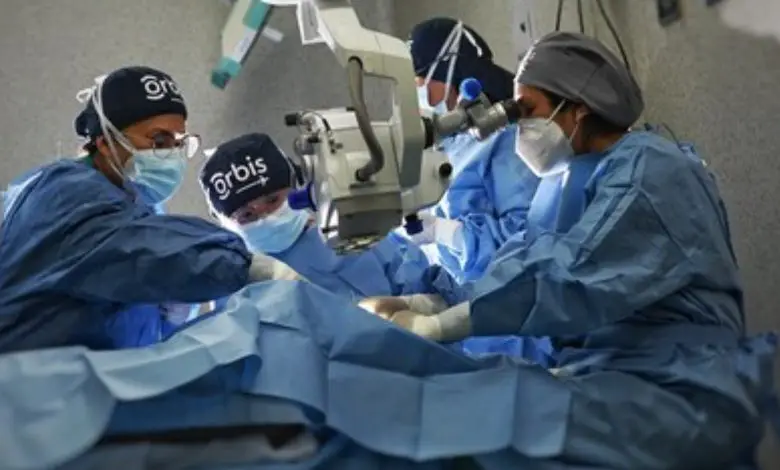
Global eye care charity Orbis International will for the very first time conduct a two-week training project in Rwanda, next year, on board the Orbis Flying Eye Hospital, the world’s only fully accredited ophthalmic teaching hospital on a plane.
Rwanda International Institute of Ophthalmology (RIIO) will host the Orbis Flying Eye Hospital, Dr. John Nkurikiye, the Chief Ophthalmologist and Director of RIIO,
Asked what cutting-edge technologies are being introduced to revolutionise eye care in the country, Dr. Nkurikiye said: “We are excited to announce that we will host the Orbis Flying Eye Hospital next year.
“This state-of-the-art airplane is equipped with the latest simulators for teaching eye surgery and includes a modern eye theater for performing complex surgeries. The plane will be in Kigali for about 15 days, and we will share more details with the public as our plans develop.”
Orbis International, an international non-profit non-governmental organization dedicated to saving sight worldwide, is well known for its Flying Eye Hospital, an ophthalmic hospital and teaching facility located on board a McDonnell Douglas DC-10, an American trijet wide-body aircraft.
The Flying Eye Hospital brings training to doctors and nurses in developing countries with little access to professional development and training.
Orbis International’s programmes focus on the prevention of blindness and the treatment of blinding eye diseases in developing countries through hands-on training, public health education, advocacy and local partnerships.
Dr. Nkurikiye also said that one of the advancements at RIIO is the introduction of ocular electrophysiology tests, which have improved the country’s ability to investigate the causes of visual loss, especially in children. Visual electrophysiology is a collection of advanced techniques used to test the functioning of cells along the full visual pathway – from the retina to the optic nerve to the primary visual cortex in the brain.
“This technology helps differentiate between various genetic causes of visual impairment,” he said, adding that: “We are also rolling out the use of artificial intelligence in screening diabetic patients for eye complications.”
“This technology is a game-changer, particularly given the shortage of retina specialists. It has been tested locally and has demonstrated high reliability.”




